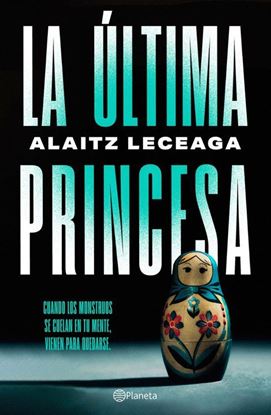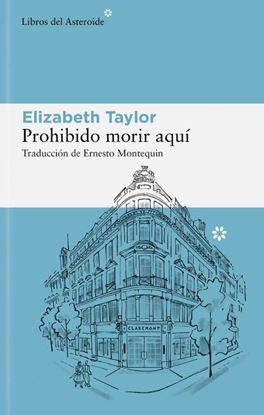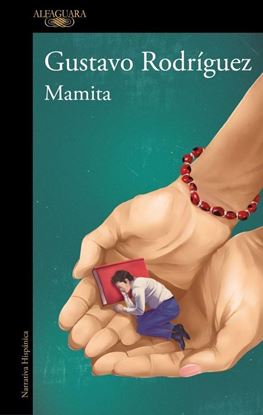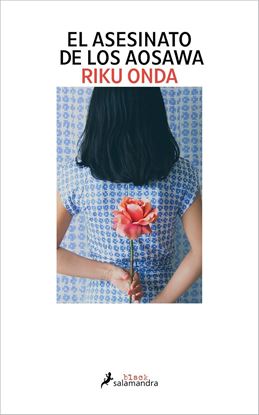

LA ULTIMA PRINCESA
Cuando los monstruos se cuelan en tu mente, vienen para quedarse.
Lyon, 1992. Nora Cortázar es la jefa del departamento de Ciencias del Comportamiento de Interpol, donde imparte clases sobre psicología criminal, pero sobre todo es conocida por ser lahija de un famoso asesino, Balbea. Obsesiva, analítica y con una memoria extraordinaria, Nora es una mujer única con unacapacidad especial para comprender el mal.
El regreso de Nora a Lemoniz para asistir al funeral de su madre coincide con elhallazgo de un cadáver en la central nuclear. En un pueblo marcado por los secretos, Nora sospecha que tras el asesinato hay más de lo que parece, y para resolverlo unirá fuerzas con su primer amor, a quien la une undoloroso pasado.
Una central nuclear abandonada, una plataforma marítima y los paisajes imponentes de la costa vasca son los escenarios de estethriller atmosférico en el que se cruzan siniestros ritualesantiguos, leyendasy oscuros secretos familiares.
1,450
1,088
PROHIBIDO MORIR AQUI
La señora Palfrey, que se acaba de quedar viuda, decide dejar su casa en el campo e instalarse en el Claremont, un sobrio y respetable hotel de Londres que tiene como huéspedes fijos a un variopinto grupo de jubilados. ¿Y a qué va a dedicarse Laura Palfrey ahora que dispone de tanto tiempo libre? Puede salir a pasear, ir a ver una exposición o esperar a que su nieto, que trabaja en el Museo Británico, vaya a visitarla. Cuando cree que en su vida ya no habrá mucho espacio para las sorpresas, conocerá a un joven escritor con el que trabará una improbable y especial amistad.
Publicada originalmente en 1971, Prohibido morir aquí es seguramente la gran novela de Elizabeth Taylor, una de las más destacadas novelistas británicas del siglo xx.
Esta encantadora historia sobre las excentricidades y sinsabores de la tercera edad es una inteligente indagación sobre la soledad y las posibilidades de la amistad. Sus divertidos personajes, la precisión de las observaciones sobre la vida cotidiana y un fino sentido de la ironía y de la compasión hacen de este libro una narración inolvidable.
1,450
1,088
LA GLANDULA DE ICARO
Una operación quirúrgica que extirpa el impulso sexual masculino, un tren que nos devuelve a cualquier punto del pasado, un invento genético que acerca la vida eterna... En esta mítica colección de relatos, Anna Starobinets retrata sin piedad una humanidad que se tambalea. Ciencia y religión, razón y pasiones, instinto y civilización: no hay pieza del puzle humano que escape a su mirada, a la vez devastadora y comprensiva. La glándula de Ícaro es una distopía que roza peligrosamente lo real, donde la ciencia es solo una excusa para abrir en canal a sus protagonistas y revelar sus engranajes. La obra de Starobinets es puro «horror lírico». Esta colección de relatos está repleta de pesadillas que amenazan no solo con cumplirse, sino con ser realidad en el momento en que se leen.
1,450
1,088
LIBRO 2 (LOVE ME, LOVE ME)
Después de los eventos del primer libro, June White sigue navegando por las complejidades de su último año en el instituto en Laguna Beach.
Aunque ha comenzado a adaptarse a su nueva vida, las cosas están lejos de ser sencillas. June se encuentra cada vez más envuelta en el mundo de James Hunter. James, con su encanto peligroso y su pasado lleno de secretos, sigue siendo una figura enigmática y conflictiva en su vida.
A pesar de sus mejores esfuerzos por mantenerse alejada, la atracción entre ellos es innegable y cada vez más intensa. En medio de todo esto, June se enfrenta a decisiones difíciles que podrían cambiar el curso de su vida.
¿Podrá encontrar un equilibrio entre su corazón y su razón, o se perderá en el caos que la rodea?
1,450
1,088
MAMITA
Un deber familiar ha sido postergado durante décadas por el escritor protagonista de esta novela: contar la excepcional historia de sus abuelos y de su madre, cuyos orígenes se remontan a inicios del siglo XX en la Amazonía peruana. Ahora, con su madre próxima a cumplir noventa años, siente que ha llegado el momento de saldar esa deuda. Así es como Mamita cobra vida, una novela que entrelaza dos relaciones íntimas: la memoria del amor filial y el proceso mismo de escritura.
A través de recorridos citadinos, evocaciones de la selva y reflexiones metaliterarias, el hijo escritor indaga en la naturaleza de sus vínculos familiares, las tensiones sociales y raciales que los atraviesan y la huella imborrable de la muerte. Al mismo tiempo, se enfrentan a los desafíos del oficio novelesco para capturar aquello que el tiempo suele volver irrecuperable.
1,450
1,088
EL ASESINATO DE LOS AOSAWA
Mientras un sofocante calor estival aletarga la ciudad japonesa de K, en la mansión de los Aosawa se celebra una gran fiesta de cumpleaños de varios de sus miembros, entre ellos el del cabeza de la familia, médico de reconocido prestigio y propietario de una importante clínica. La velada parece transcurrir con la normalidad de esas ocasiones, hasta que todo da un repentino vuelco cuando los asistentes empiezan a sentir mareos y convulsiones. En pocos minutos, diecisiete cuerpos, seis de ellos de niños, yacen en el suelo, presuntamente envenados con cianuro en las bebidas. La única superviviente es Hisako, la hija pequeña, y la única pista, un papel con un poema quizá dejado por el asesino.
Hisako, que perdió la vista tras un accidente, se halla entre los pocos testigos de la masacre, pero apenas recuerda nada: en su confuso interrogatorio sólo habla de una habitación azul, pequeña y en penumbra, y flores blancas. Unos meses más tarde, el joven que entregó el sake aparece muerto, con una nota en la que se declara culpable del crimen masivo. La investigación se cierra de forma abrupta, pero muchos están convencidos de que hubo otras personas implicadas.
1,450
1,088














